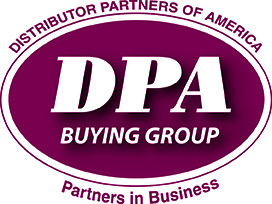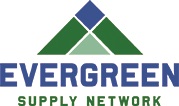 |
| istockphoto.com |
Cost savings are just the beginning of buying group and co-op benefits.
by Kim Phelan
 |
| Haines |
“Today, we are witnessing unprecedented consolidation, pricing volatility and an increasing presence of direct-to-customer competition,” said Zac Haines, CEO of DPA Buying Group. “DPA is helping our members and their sales teams to become ‘consultative sellers’ as opposed to ‘order takers.’ We provide them with tools to optimize their business operations, better manage their inventory, and help them selectively partner with fewer trusted suppliers who are committed to their success.”
DPA, short for Distribution Partners of America, leverages the collective purchasing power of over 1,400 independent distributors to negotiate deeper discounts and savings for its members. The group also provides an educational and support network for distributors to learn and share best practices with one another.
Haines identified important value propositions that help differentiate his organization in the marketplace of buying groups: (1) There’s no cost or dues to join DPA. The organization operates efficiently and maintains a modest staff so it can direct more money back to its distributor members and partner suppliers. (2) DPA offers a robust network of diverse suppliers across numerous product channels. In addition to industrial and contractor supplies, it has direct relationships with top manufacturers of safety equipment and clothing, janitorial and cleaning supplies, packaging products, and public safety apparel. For end-users with additional demands, DPA can also connect distributors with suppliers of maintenance products, odor control, ear protection, and respirators. (3) Its annual conference features various product halls where distributors can learn more about products and services they may not have otherwise been exposed to. Great speakers are another perk: “Our most recent conference featured a keynote address from basketball Hall of Famer and original Dream Team member, Chris Mullin, about strategy and teamwork,” Haines said.
OFFERING NEW BENEFITS
 |
DPA recently launched DPA University (www.DPAUniversity.com), its new online educational portal that offers free product training and soft-skills courses to all DPA distributors and their employees. The platform features more than 70 product-specific courses, ranging in length from five minutes to over an hour. Besides product training, DPA distributors also have access to over 1,000 soft-skills courses that include customer service, sales training, workplace safety, leadership training, courses on finance, technology, time management, human resources, and more. Companies can track their employees’ progress and completion rates – several courses contain recap summaries and even quizzes at the end of the presentation to ensure knowledge is retained. Also, DPA suppliers are able to create and submit their own content to the portal.
That’s not all that’s new at DPA. “We are also pleased to announce the new DPA Product Content Hub, Powered by DDS,” said Haines. “This initiative is designed to improve the customer experience, facilitate informed purchasing decisions, and drive growth for distributors and manufacturers.” To benefit from the Hub, distributors must have an e-commerce website or storefront. To facilitate adoption, DPA has spent the last year adding several more technology partners that offer members discounts on both their e-commerce and ERP needs.
NETPLUS ALLIANCE
 |
| Murphy |
Choosing where to dedicate limited resources needn’t be daunting, but distributors should devote careful attention to identify the group that will work best for them, advises NetPlus Alliance President Jennifer Murphy. She suggests weighing three key considerations:
1) Do you have examples of how your members have grown with your group? A growth-focused organization will be able to share concrete case studies of successes their members have experienced. Ideally, those case studies showcase stronger channel partnerships and the true bottom-line impact of the buying group’s programs. For example, NetPlus distributors have shared stories of growth with the group’s suppliers of up to 400% in specific products lines thanks to its Growth Plus program. Another distributor grew net profits 20% thanks to its rebate programs.
“That kind of profit growth would be hard to accomplish otherwise without reducing payroll, expenses, increasing sales or increasing gross margin,” Murphy said.
2) Are there restrictions placed on my business when I join your buying group? For example, Murphy says, NetPlus Alliance works alongside its distributor members as a strategic partner and resource without being intrusive in their day-to-day operations.
3) How will I need to change my operations as a part of your organization? Buying groups have different approaches to managing finances. In the case of NetPlus, the group doesn’t get involved in invoicing, leaving distributors to conduct business with suppliers as always and use the same local supplier representation. Similarly, distributors and suppliers make their own determinations about whom they do business with.
GROWTH-FOCUSED SERVICES
 |
Murphy says distributors are currently in an environment that forces them to rethink and adapt how they operate. “At NetPlus Alliance we help our distributor members navigate these ever-present changes in the market and connect them with the right channel partners to drive sustainable growth and long-term success.”
As distributors adapt to an uncertain market environment, the group adds to its buying advantages with the following: Growth Plus – A popular joint sales planning program through which members can target the channel partners that they want to grow with and then collaborate one-on-one to build a plan for growth, while leveraging NetPlus’s outlined process. Staff Additions – The team is growing, from inside sales and customer service to a dedicated field team that engages with partners on the ground. NetPlus Academy – NetPlus Alliance facilitates industry-specific, supplier-driven classes, general business training, in-person training events, and virtual training events. CareerPlug – They’ve partnered with this premier hiring software that helps members attract, communicate with, and evaluate applicants for open positions – supporting more informed hiring decisions. eCommerce Collective – The group helps its members stay ahead in the evolving digital landscape by providing education and vetting service providers that help them succeed online.
EVERGREEN SUPPLY NETWORK: A MEMBER-OWNED COOPERATIVE
 |
| Miller |
Evergreen’s members are industry-leading industrial (and construction) supply distributors and top-tier manufacturers in North America who collectively generate annual revenues of nearly $4.5 billion, stock hundreds of millions of dollars of inventory, and consistently achieve above average growth, according to Executive Director Jen Miller, who joined the organization this June. She attributes member profitability largely to the emphasis the co-op places on the people side of the business.
“Our members believe in putting the investment into their employees annually through professional development programs, product-knowledge schools, and targeted trainings that are designed to help Evergreen members have the best-trained sales and operations people in the industry.
“In today’s environment, employees want to feel like their employer cares about them,” she continued. “Our programs show them through action how much they are valued. They get the opportunity to travel into our world-class training center where they can be without distractions and focus on their learning.”
Located in Farmers Branch, Texas, Evergreen’s training center is a member-owned 17,000-square-foot facility called the Founders Training Center. Evergreen Supply Network offers 30-35 different training courses each year, including the Evergreen Executive Leadership Academy, which is accredited for continuing education credits by the University of Nevada Las Vegas.
GET THE RIGHT FIT
 |
Distributors and the groups they evaluate should have the same common goals and shared core values, says Miller. Evergreen’s key values are: (1) To increase profitable market share. “We support this by having our Planning for Profit and Partnership Conference yearly,” Miller said. (2) Both distributors and preferred suppliers are recognized as key market leaders. “Our philosophy is selective,” Murphy said. “We want members who are the best distributor in their market, versus multiple members saturating a single market. Same goes for our preferred suppliers, with a focus on having only a few in each product category.” (3) Distributors and suppliers provide each other with sustained competitive advantage.
“There are many things to consider when a distributor makes the decision to join a group,” Miller said. “Our group gives members high-level access to our preferred suppliers, which ensures a strong relationship that helps grow the business on both sides. Evergreen also offers a dedicated resource to invest in the education of your most important resource, your people.”
This article originally appeared in the September/October 2024 issue of Industrial Supply magazine. Copyright 2024, Direct Business Media.












